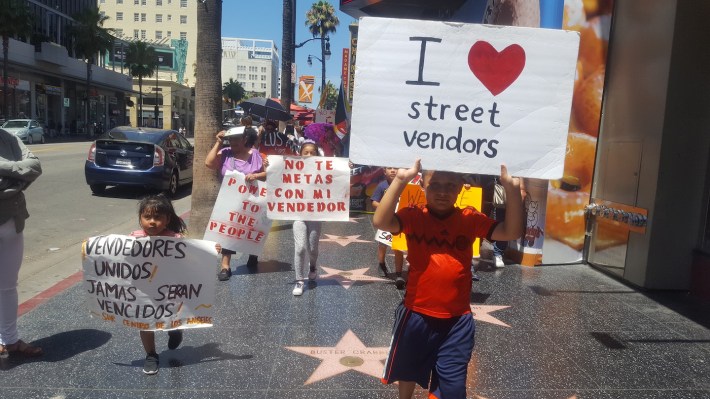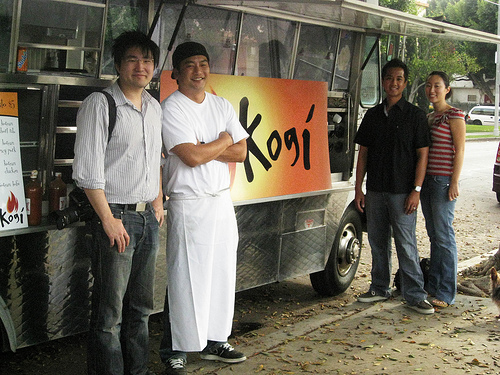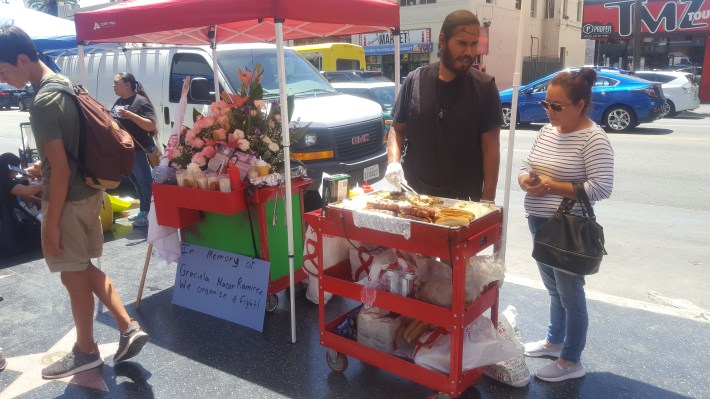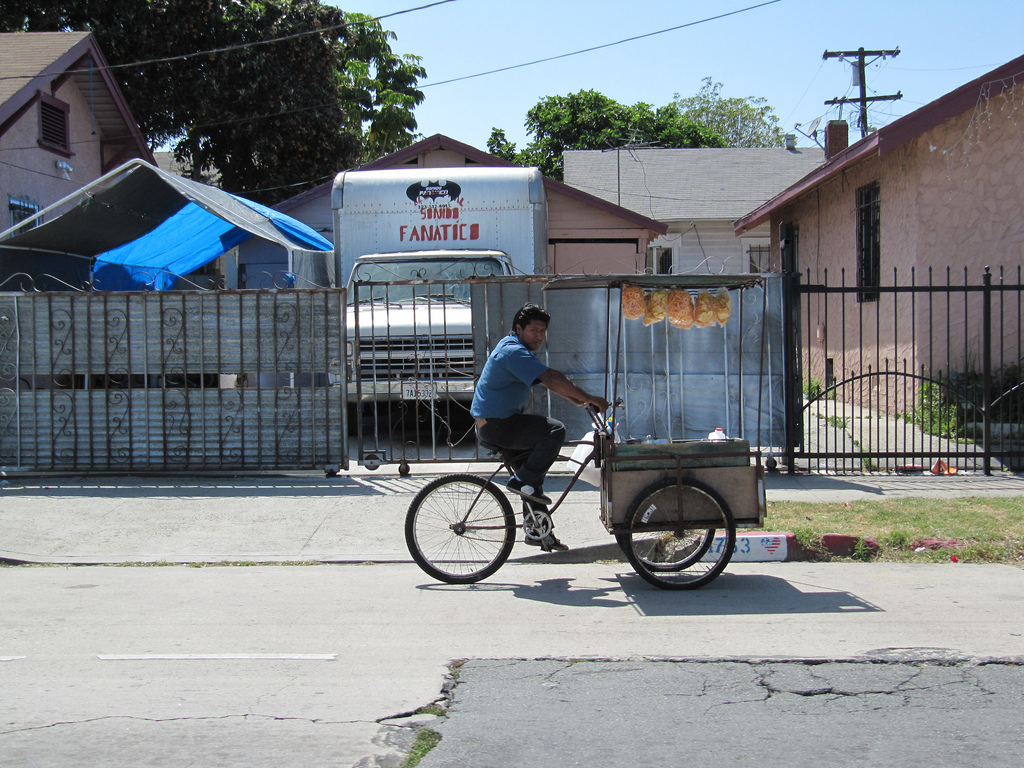[dropcap size=big]T[/dropcap]hey are as much a part of the urban landscape in Los Angeles as Dodger Stadium and congestion on the 405 — the taco carts and tables smothered in toys and knock off handbags lining many streets in neighborhoods across the city.
But until today, sales on the street of anything from bacon-wrapped hot dogs to Mexican National flags were illegal, even though the law was rarely enforced.
After more than 10 years of back and forth debate about street vending, the Los Angeles City Council voted Wednesday overwhelmingly to make it legal. The 13-0 vote came in a council chamber packed with hundreds of street vendors who broke into tears and shouts in Spanish of “we won, we won” after the vote was tabulated.

Other large cities in the country, such as Chicago and New York, have long legitimized street vending. L.A. – the city whose culinary identity is was basically created by street vendors – is finally catching up.
Los Angeles decriminalized vending in 2013, amid fears that they could jeopardize immigrant sellers and put them at risk of being deported. But that didn’t stop vendors from getting hassled by security guards and law enforcement, and sometimes cited and fined. Just this year along Hollywood Boulevard, authorities started to enforce ordinances prohibiting the storage of bulky items on sidewalks – laws commonly used to target homeless encampments.
Roy Choi, earlier this year, told L.A. Taco, "Food will be sold on the streets regardless." Choi, like many of L.A.'s most popular chefs, famously began his Kogi empire on L.A. streets. Kogi, and the explosion of modern food trucks that started almost a decade ago, was a major part of the so-called "Taco Truck Wars" that led to one of the first major victories for street vendors who could afford to roll their shop on four wheels.
RELATED: Roy Choi Checks Back in With L.A. Taco

[dropcap size=big]N[/dropcap]ow it’s up to the city to figure out how it will put a program in place to issue permits to an estimated 50,000 vendors who peddle all manner of produce, cooked meals, and merchandise all over the city in parks, by schools, and on street corners and sidewalks.
City officials said they've given themselves a deadline of January 2020 to figure out how much to charge for permits and to put a process in place for issuing them.
Earlier this year, the City Council backed proposed rules to regulate where and how vendors can hock their wares, and requested from city lawyers to craft an ordinance for their approval. The state had also decriminalized vending this year.
RELATED: Street Vendors Across All of California Are Now Legal – On Paper, At Least

Despite today’s unanimous vote, L.A. still plans to ban vending near busy venues such as Dodger Stadium, the Hollywood Bowl, Staples Center, the Coliseum, Universal Studios, and the Hollywood Walk of Fame. That move had been sought by business groups and corporations such as Anschutz Entertainment Group, owner of L.A. Live and Staples Center, and operator of the Los Angeles Convention Center.
The City Council also tasked city attorneys to prepare new findings based on health or safety to prohibit vending in those areas to ensure the rules complied with the state law. The draft rules also ban vendors from blocking too much of the sidewalk and require them to keep the area clean, among other restrictions.
RELATED: The True Story of How National Taco Day Was Invented — Then Appropriated






